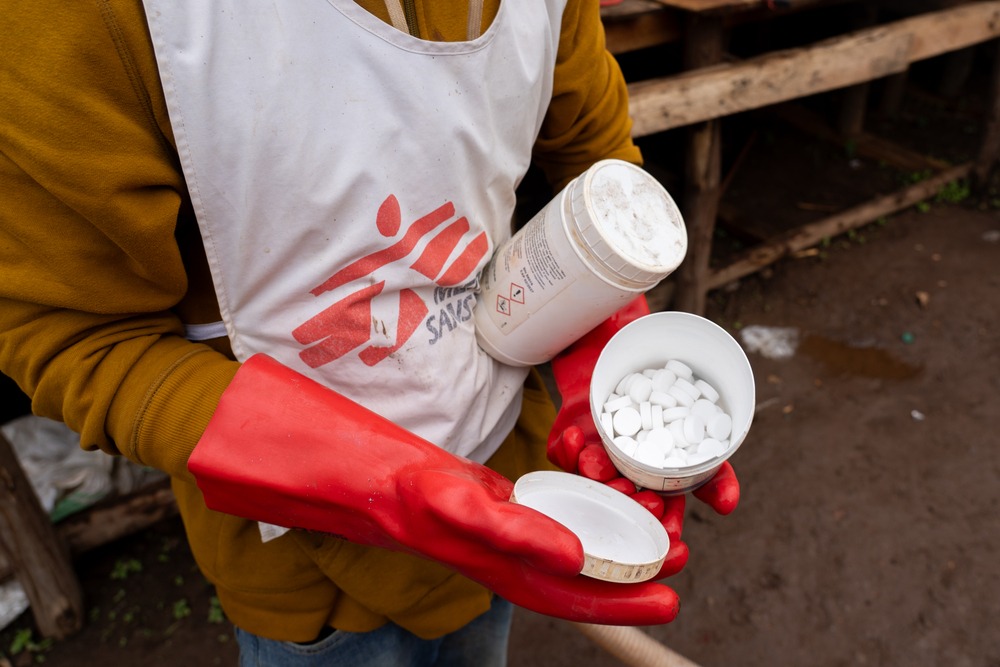By Bunmi Yekini

Doctors Without Borders/Médecins Sans Frontières (MSF) has sounded the alarm over the escalating cholera epidemic sweeping across the Democratic Republic of Congo (DRC), describing it as one of the country’s worst outbreaks in a decade.
According to data from the Ministry of Health, more than 58,000 suspected cases and 1,738 deaths have been reported in 20 of the country’s 26 provinces since January 2025, with a fatality rate exceeding 3 per cent. MSF warns that the situation is deteriorating rapidly, fueled by floods, conflicts, displacement, and the country’s fragile water and sanitation systems.
“The rapid spread of the epidemic across the country this year is of particular concern to us, especially during the rainy season,” said Dr. Jean-Gilbert Ndong, MSF physician and medical coordinator in DRC. “We fear further outbreaks if urgent measures are not taken.”
Since January, MSF said it launched 16 emergency interventions in coordination with the Ministry of Health, treating more than 35,800 patients and vaccinating over 22,000 people in provinces including North and South Kivu, Maniema, Tshopo, Equateur, Kinshasa, and Haut-Katanga. Teams remain deployed in some of the hardest-hit areas, such as Fizi (South Kivu) and Kongakonga (Tshopo).
“At this critical stage, only a general mobilization will make it possible to contain the disease and slow down the alarming spread of epidemic outbreaks,” Ndong emphasized.
Despite ongoing efforts, MSF says the national response remains severely underfunded and poorly coordinated. Weak disease surveillance, shortage of vaccines and medical supplies, and limited humanitarian presence are compounding the crisis.
“Wherever our teams are working, the situation is alarming: existing structures are not equipped to deal with cholera, and there is a shortage of medical supplies and vaccines,” said Ton Berg, MSF program manager in South Kivu. “The Congolese government and humanitarian agencies must strengthen financial and medical resources, particularly for vaccine distribution and emergency response mechanisms.”
MSF teams continue to fill critical gaps in the response by setting up cholera treatment centres, training community health workers, installing chlorination points, and supporting improvements to water and sanitation systems. However, security challenges and logistical constraints have made it increasingly difficult to reach affected communities.
“Persistent insecurity, marked by clashes between armed groups along the main roads, hinders movement and delays the delivery of assistance,” Berg explained. “The closure of Bukavu and Goma airports has also severely restricted the transport of medical supplies to eastern DRC.”
The humanitarian organization warns that without urgent and coordinated action, the approaching rainy season could trigger even more widespread transmission.
“We call for coordinated and urgent action to ensure the rapid provision of medical care, including unimpeded access and sustainable investment in access to safe drinking water and sanitation,” Berg urged.
Cholera, a highly contagious but preventable bacterial infection, continues to expose the fragility of DRC’s health system. As thousands remain at risk, MSF insists that cholera must be treated as a national public health emergency, requiring long-term investment and a unified response from the Congolese government, humanitarian actors, and international partners.
